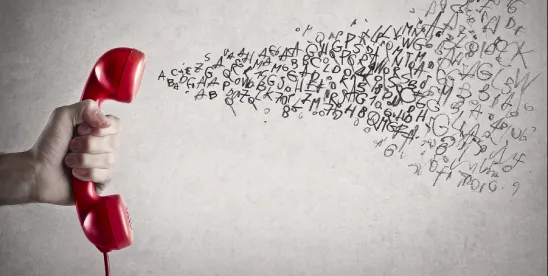Summary
A recent decision from a federal court in California found that a retail pharmacy’s “flu shot reminder” calls to mobile phones fall within the FCC’s TCPA safe harbor for exigent health care treatment messages. But the holding is limited by the particular facts of the case: specifically, that the lead Plaintiff had an unlimited calling and texting plan.
In Depth
Responding to the need to improve patient outcomes, control costs and invest in a positive patient experience, health care entities—whether they are physician practices, hospitals, pharmacies, insurance providers, or care coordinators—need scalable, efficient, and effective digital tools to connect with patients. For many types of patient engagement, a common tool is automated calling and text messaging. Continued uncertainty, however, about the application and requirements of the Telephone Consumer Protection Act (the TCPA is codified at 47 U.S.C. § 227) has limited the use of automated calling in light of the risk of substantial liability for improper calls. These concerns threaten to slow meaningful progress on important public health and policy goals.
The TCPA restricts calls and text messages to landlines and mobile phones made or sent using certain automated dialing technology or artificial/prerecorded voice messages. When the TCPA applies to a particular call or text (based on the technology used to place the call/text) it requires various forms of consent from the contacted party. Under the TCPA, plaintiffs can recover up to $1,500 per call or text message, plus attorneys’ fees for a successful class action. Today, TCPA compliance requires careful analysis of an overlapping set of statutory provisions, FCC rulemaking, and court decisions.
Regulatory guidance from the FCC in 2012 (FCC 12-21) created a broad safe harbor with respect to calls placed to landline telephones when the calls are subject to HIPAA:
[W]e exempt from our consent, identification, time-of-day, opt-out, and abandoned call requirements applicable to prerecorded calls all health care-related calls to residential lines subject to HIPAA.
This helps for landline calls—but health care entities also recognize that a growing generation of “cord cutters” rely primarily or exclusively on mobile phones. Communicating with these patients is just as important. The FCC’s 2012 Order (which took effect in 2013) paved the way for calls to landlines, but anyone calling a cellphone using automated dialing technology still has the burden to prove consent.
The FCC returned to this topic with additional rulemaking released in the summer of 2015 (FCC 15-72). Compared to landline calls, the FCC has narrower statutory authority to create exceptions for calls to mobile phones. In its 2015 Order, the FCC created a safe harbor for some calls to cell phones by health care providers, but:
[R]estrict[ed] it to calls for which there is exigency and that have a healthcare treatment purpose, specifically: appointment and exam confirmations and reminders, wellness checkups, hospital pre-registration instructions, pre-operative instructions, lab results, post-discharge follow-up intended to prevent readmission, prescription notifications, and home healthcare instructions . . .
Id. (emphasis added). The FCC also included a number of technical requirements—such as limits on message length and frequency—and required that all messages and calls under this safe harbor be free to the recipient. “Free,” according to the FCC, means that the call or text message cannot count against the recipient’s monthly allocation of minutes or messages. Likewise, to fit within the safe harbor, calls must be exigent and have a health care treatment purpose. The FCC provided some examples in its 2015 Order, but health care entities (on one side) and aggressive TCPA plaintiffs’ lawyers (on the other) have grappled with the characteristics of exigency and treatment within the meaning of TCPA’s safe harbor.
Magistrate Judge Jacqueline Scott Corley of the United States District Court for the Northern District of California had opportunity to consider these issues in a recent case. The plaintiff was a regular shopper at Safeway in Oakland. She received a flu shot at a Safeway in-store pharmacy in January 2014, and when she did so, she completed a telephone consent form with her cell phone listed as her “home” number.
Safeway’s in-house pharmacy engaged a third-party to send prerecorded voice messages and text messages to existing pharmacy patients in order to remind them to get flu shots for the upcoming winter season. In the fall of 2014, Safeway’s vendor left a prerecorded message on the plaintiff’s mobile phone, which included an explanation of how to opt-out of future calls. The next day, the plaintiff visited a Safeway store and received her flu shot. Approximately two months later, however, Safeway’s vendor called the plaintiff again, with a (now redundant) reminder to get a flu shot.
Nine months after receiving the second reminder call, the plaintiff filed suit seeking to certify a class of patients who received flu shot reminder calls to their mobile phones. Safeway moved for summary judgment based on three defenses: (1) the plaintiff had provided prior express consent for the calls by filling out Safeway’s form and listing her mobile number; (2) the calls were permitted under the FCC’s 2015 exception for exigent health care treatment messages; and (3) the calls were “emergency” messages that are exempt from the TCPA’s consent requirements in the first place.
In an October 11, 2016, decision (Case No. 16-cv-04419-JSC at Docket No. 74), Magistrate Judge Corley ruled in Safeway’s favor on arguments (1) and (2), and found it unnecessary to address argument (3). First, the Court found that when the plaintiff provided her wireless number in connection with receiving a flu shot, she consented to receiving text messages and calls about future flu shots:
The Court concludes that every reasonable trier of fact would have to find that Safeway’s flu shot reminder calls to Plaintiff for future flu seasons bear sufficient relation to the original reason for which Plaintiff provided her number—namely, for her to receive flu shots from Safeway in January 2014 and again in November 2014. Therefore . . . Safeway’s flu shot calls were within the scope of Plaintiff’s prior express consent and Safeway is entitled to summary judgment on the TCPA claims.
Id. at 17-18. Next, the Court ruled that even if the plaintiff had not provided prior express consent, the calls in question had an exigent health care treatment purpose, and thus were exempt from the TCPA’s consent requirements based on the FCC’s 2015 Order. In doing so, the Court rejected the plaintiff’s argument that flu shot reminders from a retail pharmacy amount to telemarketing—an effort to sell a product or service—and not the sort of health care provider-patient messages that the FCC contemplated in setting forth the safe harbor. The Court found that this argument failed in light of the FCC’s 2012 Order that explicitly cited—at least in the context of landlines—“immunization reminders” as calls that are “intended to communicate health care-related information rather than to offer property, goods or services, and conclude that such calls are not unsolicited advertisements.” Id. at 9. The judge’s decision aligns with distinctions between marketing, on one hand, and patient outreach and care coordination, on the other, under HIPAA.
This decision is good news for health care entities that use automated outreach solutions to communicate with patients. The Court adopted a reasonable view of the scope of the FCC’s 2015 Order and the import of the consent implied when someone submits his or her phone number to a health care provider. There is an important limitation, however. As noted above, the health care safe harbor for calls to mobile numbers only applies to calls that are free to the recipient. The plaintiff in the Safeway case had an unlimited text-and-talk cell phone plan. This means that—with respect to this Plaintiff—the calls were indeed “free.” Not all contacted parties may have such plans, and therefore the HIPAA safe harbor in the 2015 Order may be less effective for TCPA defendants when the called party does not have an unlimited plan, or the caller does not take other steps—such as special contracts with telephone providers—to place free-to-recipient calls.





 />i
/>i

